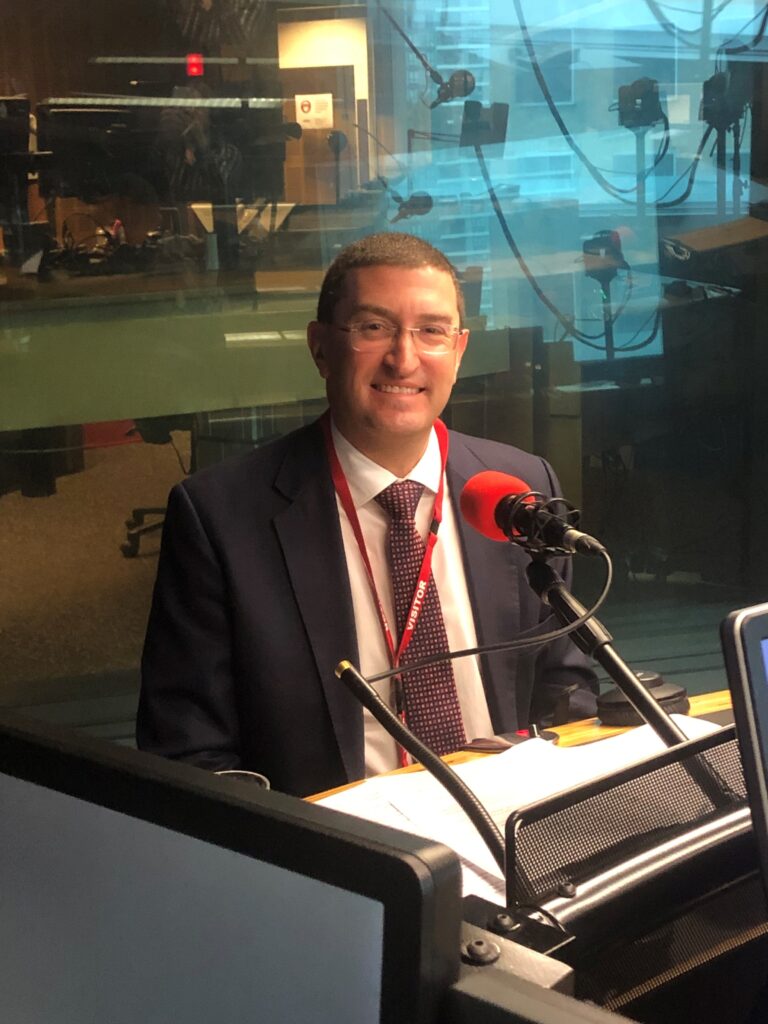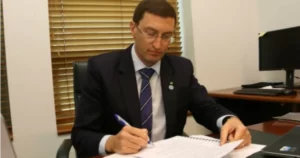INTERVIEW WITH PATRICIA KARVELAS
PATRICIA KARVELAS
I’m joined now by Julian Leeser. Welcome back to Breakfast.
JULIAN LEESER
Great to be with you Patricia.
PATRICIA KARVELAS
You say you did not learn anything in the meeting that you didn’t already know. What questions did you ask, and what do you think that you didn’t get to find out that you expected to find out yesterday?
JULIAN LEESER
Well, Patricia, yesterday we accepted the Prime Minister’s invitation to meet with the Referendum Working Group, and we received a very comprehensive presentation from the group that took most of the meeting time about the progress that led to the Uluru dialogues, which basically led to the Indigenous leaders adopting the Voice back in in 2017.
It was a very comprehensive briefing about that process, the process I was familiar with. It was good to be reminded of some of those things. And in the in the short time we had it available at the end, we agreed that we would have further discussions with the Referendum Working Group because there’s issues we both, I’m sure, to talk about in relation to that.
But we also noted that this had been a very strange and unusual process that the Government has adopted here. In most previous referenda, there’s been a committee that deals with these issues that’s public. There’s been things like a Constitutional Convention.
We didn’t call for either of those things. We just noted that those things hadn’t been present here. And we also contrasted the processes that had occurred under Tony Abbott and Bill Shorten, and Malcolm Turnbull and Bill Shorten, and Scott Morrison, where basically there’d been lockstep processes across the Parliament working together. And that just hasn’t happened at the moment. This is despite the fact that Peter Dutton, since he’s been Leader, has said we have an open mind and has been asking for detail.
Yesterday, we accepted the Prime Minister’s invitation. We’ve made him a generous offer as well to answer our questions and the Prime Minister says this is about courtesy and good manners. We want to see him accept our offer and answer the reasonable questions of Australians that Peter Dutton has put forward.
PATRICIA KARVELAS
You co-chaired the Joint Select Committee with Senator Patrick Dodson. In that joint committee, you listened to many hours of evidence and read the submissions and you recommended a pathway forward. The Voice co-design process was one of your recommendations. And of course, the Referendum Council led to the Uluru Statement From The Heart. It was all appointed under Malcolm Turnbull’s government. What more could you possibly seek to try and understand, Julian Leeser, when actually you were a co-author of the process we’re currently in?
JULIAN LEESER
Well, you’re absolutely right. I chaired the Joint Select Committee with Pat Dodson and I’ve had a long history in this. I’ve been a supporter of the Voice and have been involved in processes that led to the Voice since before I was a parliamentarian.
That Joint Select Committee that Pat Dodson and I chair recommended a process of co-design. That happened, and reported in the middle of 2021, and they had some recommendations for a Local, Regional and National voice.
In Government, the Morrison Government adopted the proposals for the Local and Regional Voice. We lost the election. Anthony Albanese became Prime Minister, and instead of adopting the Local and Regional Voice, he said we would have a referendum on this and adopt a Voice to Parliament. But he’s never spelled out the detail of what that would look like. He’s never responded to the work of the Calma-Langton Report. And this is a point we’ve made many times.
The reason we’re making this point—and I say this is a supporter of somebody who wants this to succeed—is because the idea of having a few words in the Constitution and providing the detail later is losing supporters. And the idea that if you go to a referendum campaign, people will stop asking questions about what this body will look like, I just think is wrong.
The framers of the Constitution left the decision about changing our Constitution in the hands of the people. When people are going to make this decision, they’re going to want to understand what it is that this body will do.
PATRICIA KARVELAS
Okay, so we know that this body, based on the principles explained to you, will provide advice on policy that affects Aboriginal Australians and you will design the process as a Parliament after a potential yes vote. That’s clear, and that’s crystal clear. In fact, I understand that the Referendum Working Group made that clear to you that they would design it after a yes vote. Is that a deal breaker for you?
JULIAN LEESER
Well, what we’re saying is we think Australians should be able to understand what this body looks like. We’re being asked to add to the Constitution words to create one body. It’s reasonable that Australians understand what the body would do, how it would function, what it would advise on, and how it will make a difference to people on the ground in community.
PATRICIA KARVELAS
If it’s explained…I’m just trying to get to…you know for a fact that they want to do it after a yes vote. Do you accept that that’s the way they will move forward?
JULIAN LEESER
I don’t accept that that’s the best way to achieve consensus. The thing I was struck by listening to the presentation about the Uluru process was how good that process was.
When you have good process, you gather people, you smooth out wrinkles. Good process means that you don’t lose people along the way. So when you come to a decision that consensus is made. And there hasn’t been a good process, I mean…
PATRICIA KARVELAS
But the process, they’re saying, is actually exactly that. That after a yes vote, which is a principled thing—that you’d have a voice—then you do this long consultation. That’s what they’re actually outlining to try and get the Voice right. And you would be fundamental in that. The Parliament would have to be involved in that. Why isn’t that acceptable to you?
JULIAN LEESER
The last two years, we’ve had a process of consultation. The Calma-Langton Report, they basically went around, they had nine and a half thousand people that made submissions to the Calma-Langton Inquiry and they put forward a proposal for the design of a national body. They also said that the national body should be drawn from the local and regional bodies. We accepted the recommendations of the Calma-Langton Report in relation to the local and regional bodies, which was the first step. And had we won government, we would be rolling out those local and regional bodies now.
The Government’s got the information it needs. It is time for them to make some choices about that information.
PATRICIA KARVELAS
That’s because they’re being advised by the people this would affect—the Aboriginal people that this would affect—that they don’t want to just go down the road of that. They want to do another consultation with Aboriginal people and the Parliament after a yes vote. Is that a deal breaker for you?
JULIAN LEESER
Well, I just asked what about the nine and a half thousand people, many of whom were Aboriginal…
PATRICIA KARVELAS
I know, but that’s not my question, with respect. I’m saying, is that not acceptable to you?
JULIAN LEESER
As a supporter of the Voice, as somebody who wants this to succeed, I think the best way to ensure that more Australians vote for this than not, is to provide the detail up front.
PATRICIA KARVELAS
But you’re also saying that you’re not pushing for a constitutional convention. There’s been a report today that you are. Can you just clarify that again? Why not?
JULIAN LEESER
No. Well, the process is not up to us. But what we have pointed out is that the Government’s process here is clouded.
Let me give you the latest example. You were at Garma with me, Patricia. The Prime Minister said that the proposed amendment to the Constitution was three sentences.
This week he added a fourth sentence. He didn’t announce it, he just dropped it in his letter to Peter Dutton two days ago.
The Government has been completely cavalier with this process. The orthodox process for dealing with reform in this country is you have a report, you respond to a report, you set up a committee that tries to build consensus. That’s what we’ve done right throughout these processes to get us to this point.
But here, at the last moment when it actually counts, we are not providing people with the detail, we are not building… The government is not providing people with the detail. They’re not building the support that I think is necessary to ensure that the referendum has the best chance of success.
PATRICIA KARVELAS
We’re out of time but I’d love to speak to you again, and I’m sure I will. Thank you, Julian Leeser
JULIAN LEESER
Thanks, Patricia.



